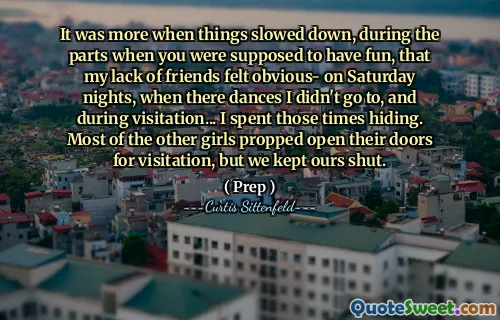We all stood and gathered our backpacks and I looked at the floor around my chair to make sure I hadn't dropped anything. I was terrified of unwittingly leaving behind a scrap of paper on which were written all my private desires and humiliations. The fact that no such scrap of paper existed, that I did not even keep a diary or write letters except bland, earnest, falsely cheerful ones to my family {We lost to St. Francis in soccer, but I think we'll win our game this Saturday; we are working on self-portraits in art class, and the hardest part for me is the nose} never decreased my fear.
The narrator describes a moment of anxiety as they prepare to leave, focusing on the fear of having left behind personal writings that reveal their inner thoughts and vulnerabilities. They are particularly concerned about a paper that might expose their private desires and embarrassing truths, even though they realize that no such document exists. This fear is compounded by their lack of a diary or deep personal expressions, relying instead on surface-level correspondence with their family.
This tension highlights the character's struggle with self-image and the desire for privacy, reflecting a universal fear of vulnerability. The seemingly innocuous notes they write to their family contrast sharply with their inner turmoil, as they attempt to maintain an upbeat facade while battling their insecurities. This internal conflict resonates with themes of adolescence and the pressure to appear composed in social settings.






